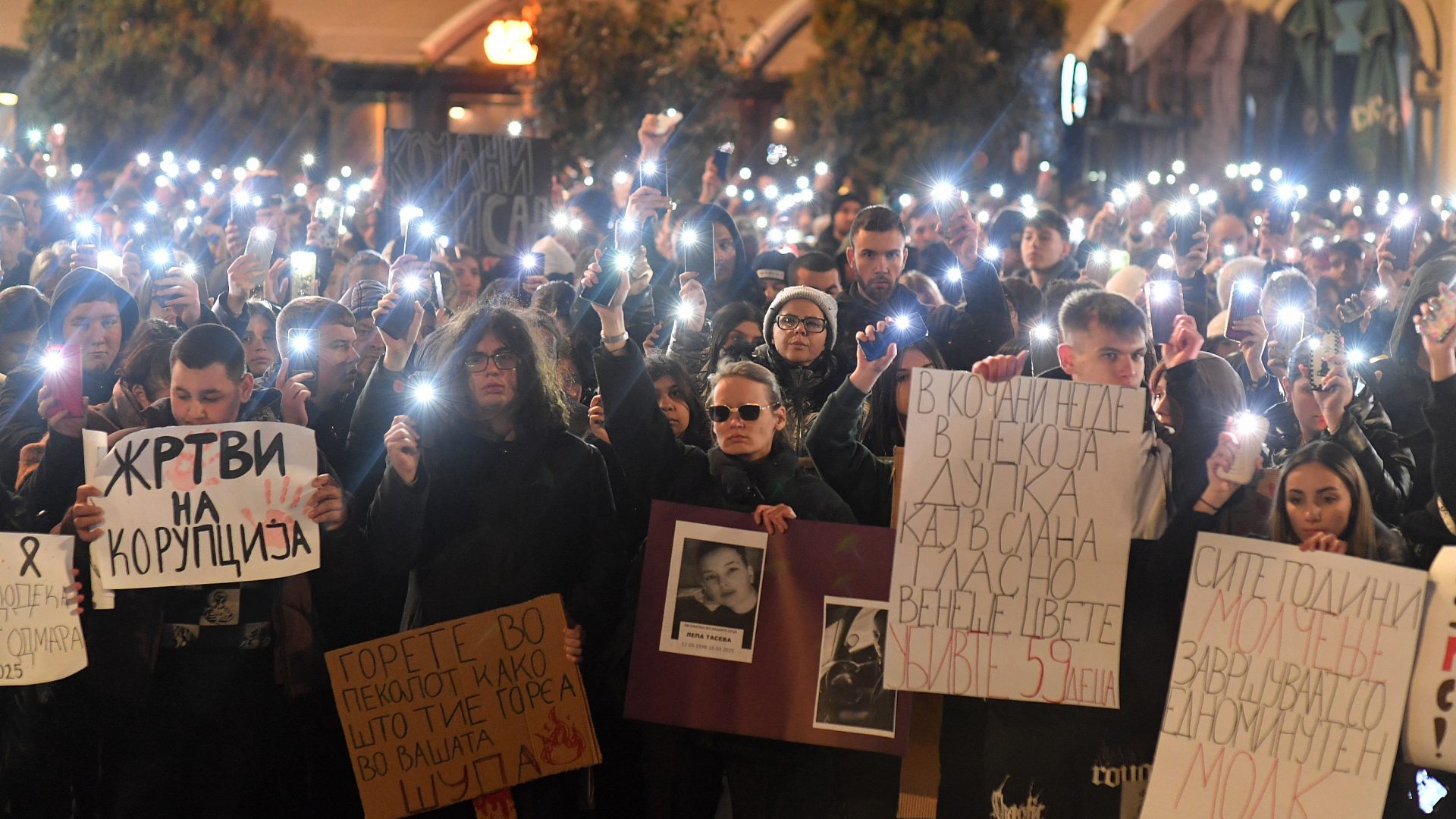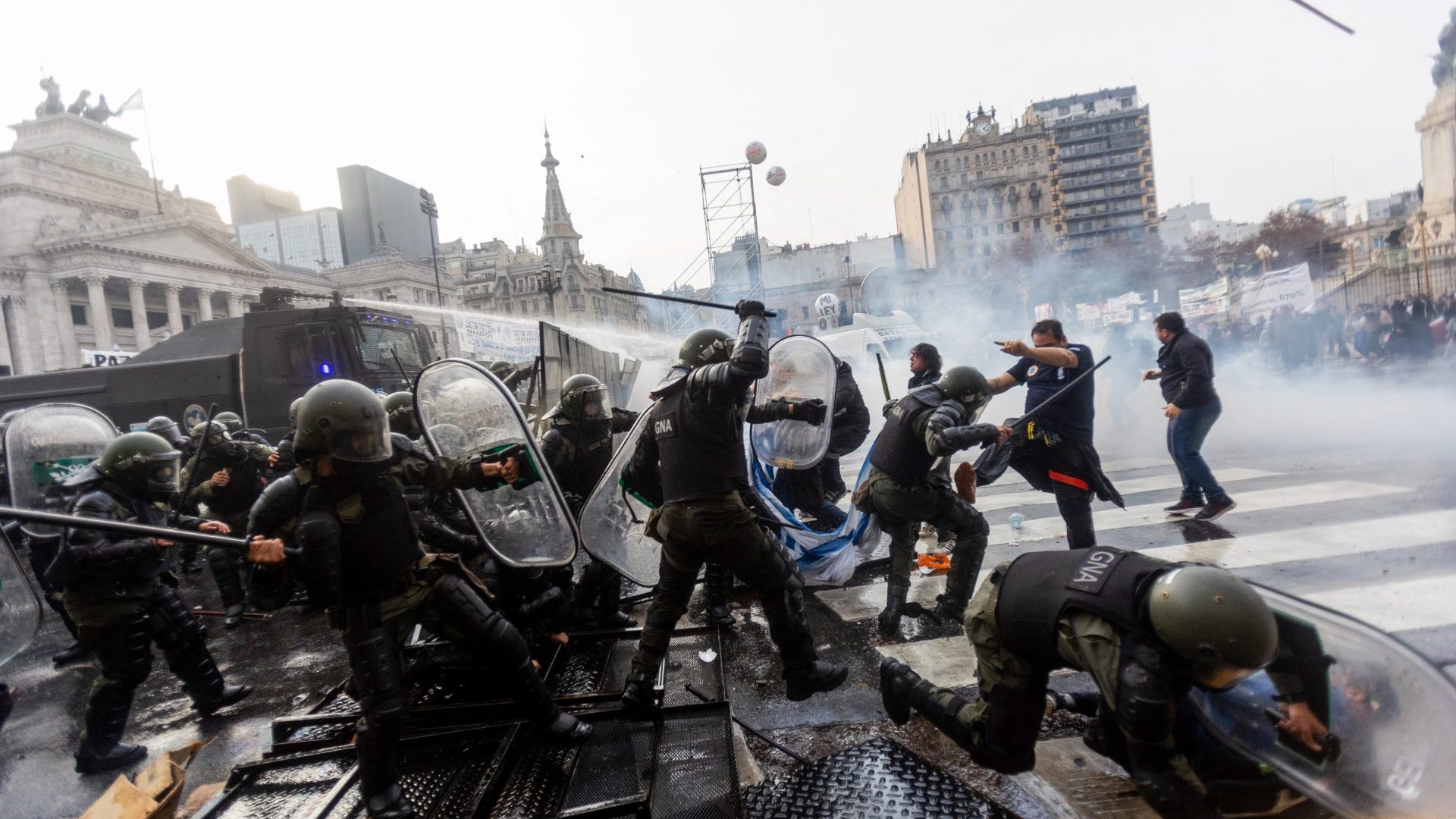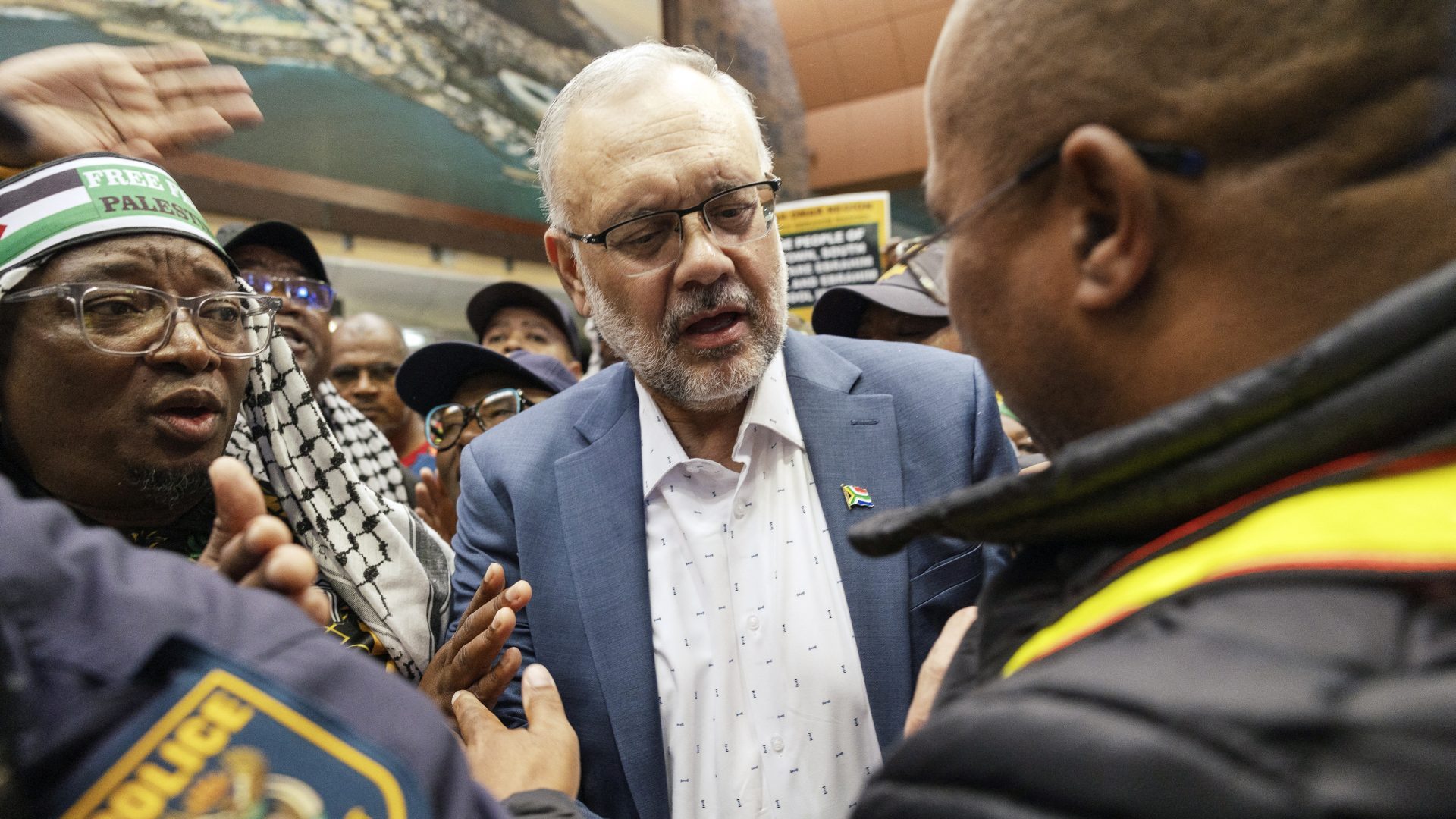It had been billed a protest, but none of the thousands of people gathered in Kočani’s grandly named but actually rather compact Revolution Park seemed to be making a sound. A good number of them were queuing up in silence to sign the book of condolence.
Others – many of them teenagers – held up signs paying tribute to the friends and family members they had lost in the fire at Club Pulse, a couple of kilometres away on the edge of town. Some of the placards sent messages to the authorities: “unbearable”, “corruption” and “justice” cropped up on multiple signs.
Members of the media milled around in the middle, trying to get their shots or deliver live TV reports. But mostly they kept their distance from the mourners – reporters and camera crews are all too aware of the scale of the loss suffered by this small town about an hour’s drive from North Macedonia’s capital, Skopje.
Suddenly, a stomach-churning wail cut through the calm. A man in his forties was staggering through the crowd, clutching a framed photograph to his chest. The young man in the picture was dressed in his high-school graduation best, a flicker of a smile around the corners of his mouth.
“Film it!” the man cried. “Film it for everyone to see!” So we filmed and recorded as he broadcast his grief for his only child and his anger that his son had died in such a senseless fashion. The crowd responded with sympathetic boos, before paramedics led the inconsolable father away.
His cousin stepped in to carry the photo frame to the book of condolence. Then he turned and addressed the crowd. “Nobody should have to go through what Kočani is experiencing,” he said. “Even when there was a war here, it wasn’t as bad as this. So many young people have died, they were aged 16-24 – that’s a whole generation in Kočani.” The crowd started chanting – “we demand justice” – and set off for the town centre.
What happened at Club Pulse was the stuff of nightmares. Hundreds of people had crammed in on a Saturday. The authorities initially said that 1,500 people were inside the nightclub, though they later revised that number downwards. But video footage shows the place was packed.
Pyrotechnics at the front of the stage gushed colourful sparks. Within seconds, flames started to lick across the low ceiling. Another video showed staff trying to put out the fire with extinguishers. Nobody appeared to be heading for the exit.
Footage from outside showed the venue’s roof burning fiercely. By the time anyone realised what was happening, it was too late – 59 people died in the fire, mostly from smoke inhalation, but some from crush injuries. Almost 200 people needed hospital treatment, with scores of them airlifted to neighbouring countries.
Club Pulse was a converted carpet warehouse, with only one entrance and exit. There was no sprinkler system and the ceiling was made of highly flammable material. And yet the authorities had repeatedly granted the nightclub an operating licence. There were police on the premises at the time of the fire – but they were looking for drugs and underage gig-goers, not safety violations.
“We have corruption, we have bad politics, everything is broken down,” Kočani restaurant owner Stojan Gluvcevski told me, as his phone rang repeatedly with bad news from the hospitals. That feeling is shared by people across North Macedonia, who have turned out in their tens of thousands to show not just their support for Kočani and its people – but their outrage that the country’s corruption was at the root of the disaster.
Prime minister Hristijan Mickoski insists there will be “no mercy” for those found responsible – and police have already made arrests, with a former government minister among those in custody. But with the week-long national mourning period now over, people in North Macedonia want change, not just a rounding up of scapegoats. And they see Serbia’s ongoing student protest movement as a model for how to react to a disaster caused by corruption.
As a banner at one of last week’s demonstrations put it: “You lit the flame – get ready for the fire”.
Guy De Launey is an award-winning Balkans correspondent



